February 2021
Android Timeline Improvements
Many improvements have been happening on the Android side of the product, primarily when viewing Caliper data within the Timeline view. We now include almost every type of data a device can send in the timeline view, such as drop box manager entries, log files, traces, and more.
View the timeline by day, drill into specific hours, and navigate to the pieces of data that you want to investigate!
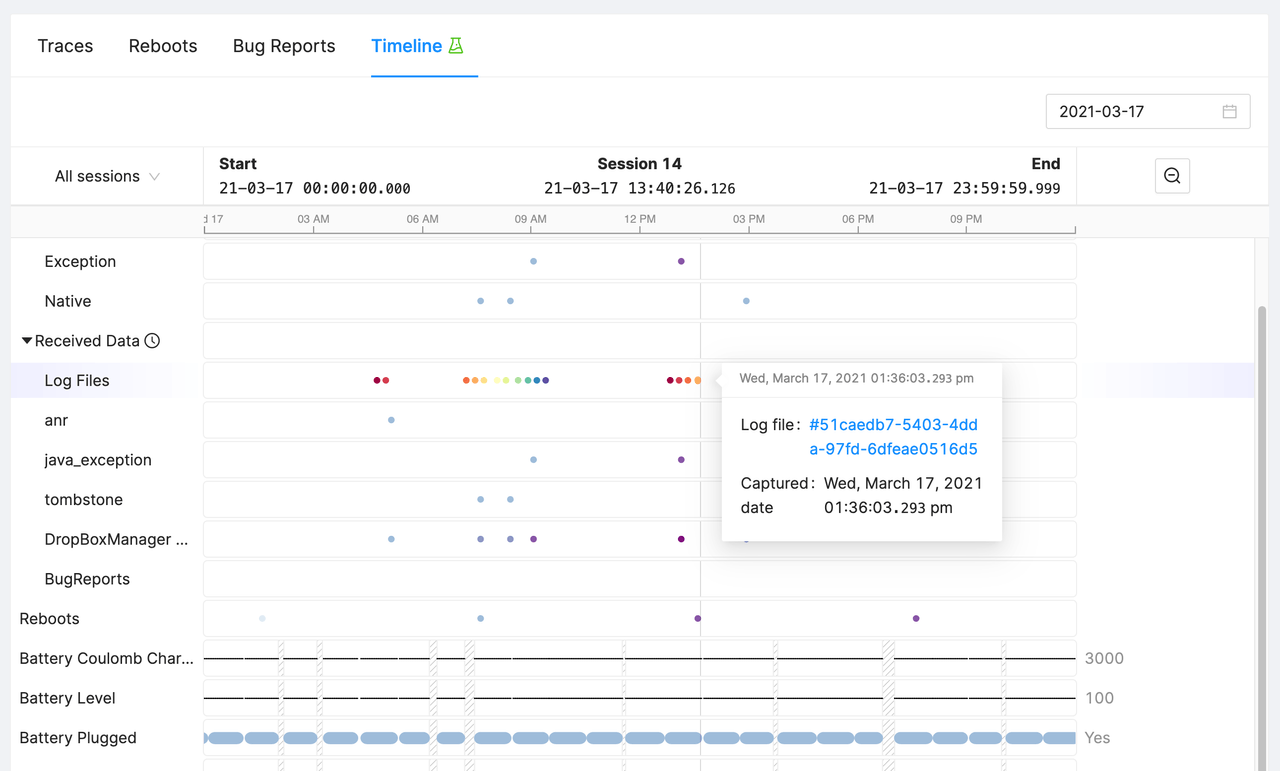
General
- Sometimes feel that reaching out to the Memfault team is too much of a burden? Hopefully not for much longer! We have added a way directly within the application to send us an email and we'll respond ASAP.
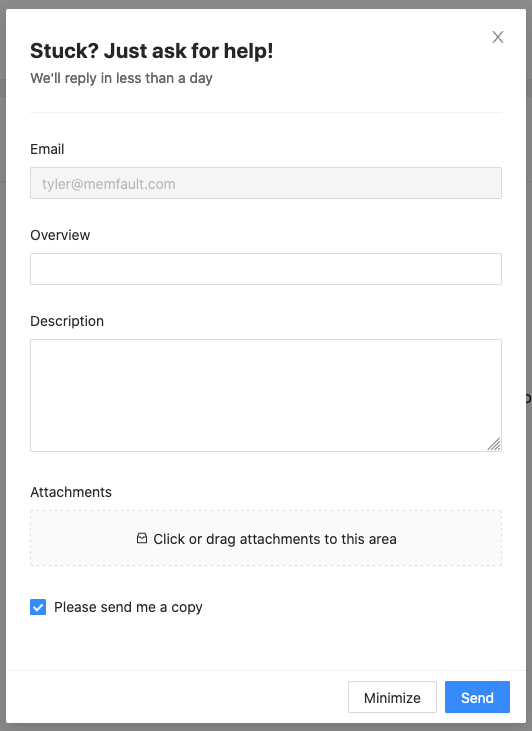
- It is now possible for admins of projects to invite users directly to their organization! This makes things much easier for our support team.
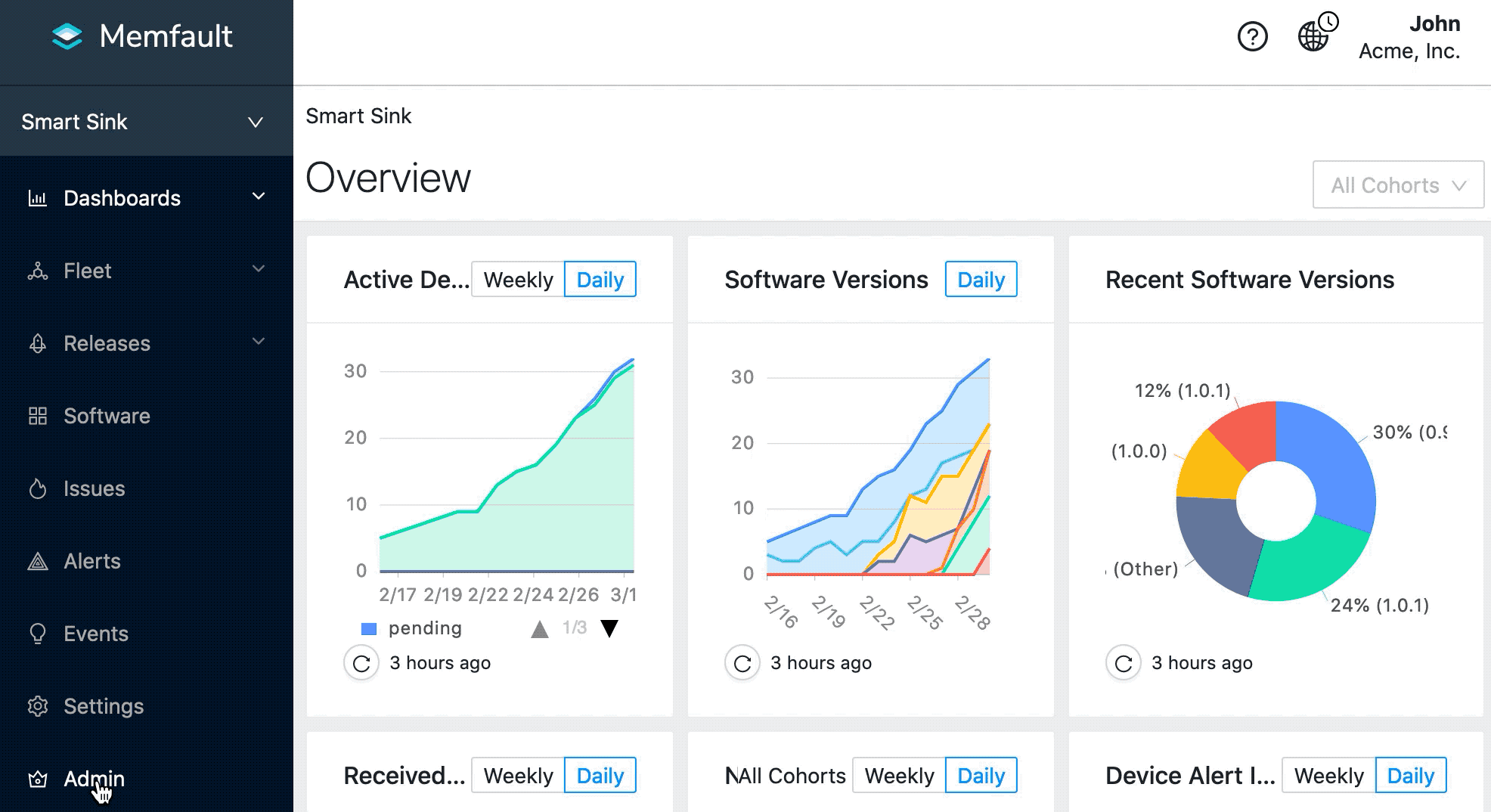
- Add an auto-refreshing queue status window on the Issues page. This makes it easy to know which are the most recent BugReport's or Coredumps from your devices.
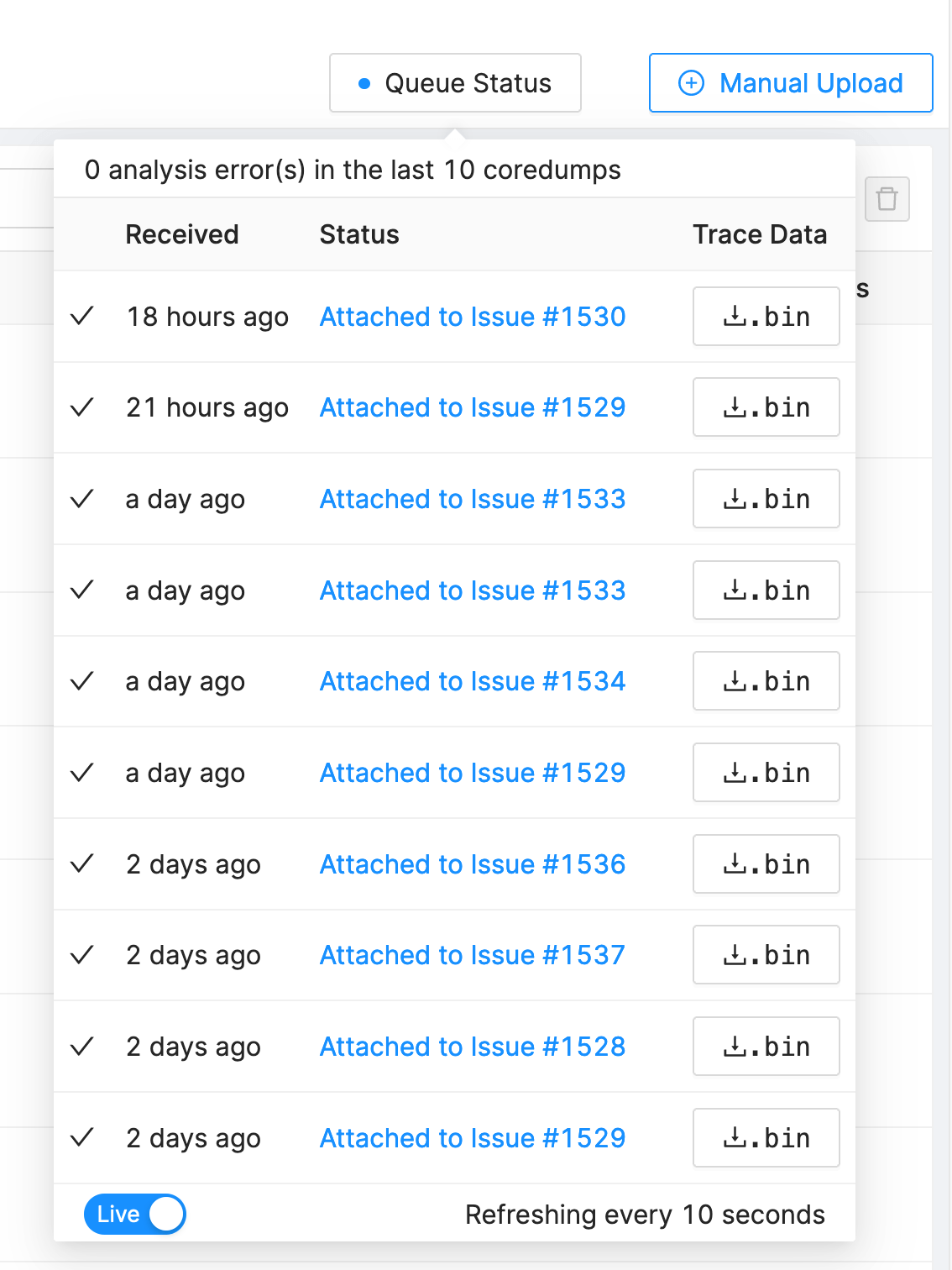
- Improve speed of deleting artifacts and devices
MCU
- The
fw_build_id.pyscript is now Python2 compatible. If you aren't using a Build ID to uniquely identify your build artifacts, you should consider starting. It saves a boat-load of time when trying to track down debug symbols. - The SDK now includes a central configuration header at
components/include/memfault/config.h. Platform overrides can be defined in memfault_platform_config.h. This should make the SDK much easier to integrate into trouble-some IDE's and build setups. - You can now use the Memfault logger as the logging backend in the Zephyr RTOS project.
- Add support for base64-encoded chunks to be sent to Memfault.
- Memfault can now process data from 64-bit embedded devices.
- For more details on the changes to the Firmware SDK that didn't make the changelog, check out the Memfault Firmware SDK changelog.
Android
-
The Bort SDK can now send up individual log files from the device to Memfault, where we will host them and allow you to search them on a log-by-log basis.
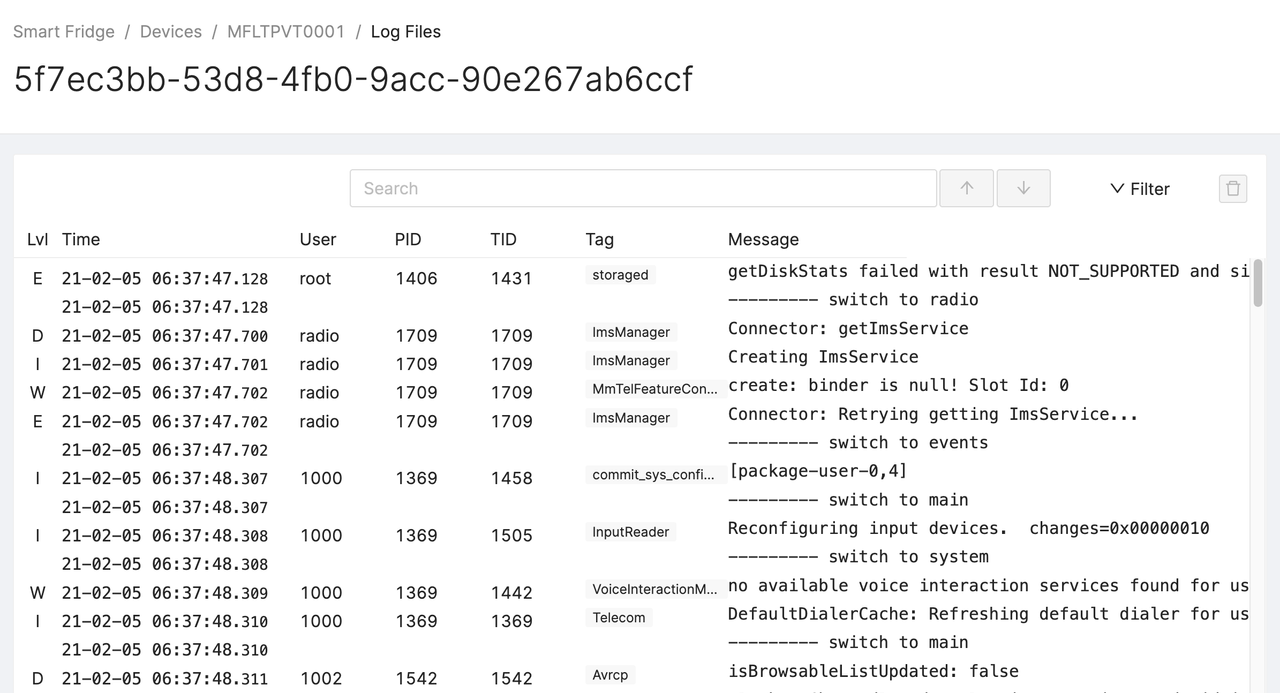
- The Bort SDK can be remotely configured from Memfault using the new Dynamic SDK Settings feature, all without performing an OTA! This makes it easy to change the types of data that is sent to Memfault, how often, and how much data to collect in each payload. You can find this setting under the Project Settings → Data Sources menu option.
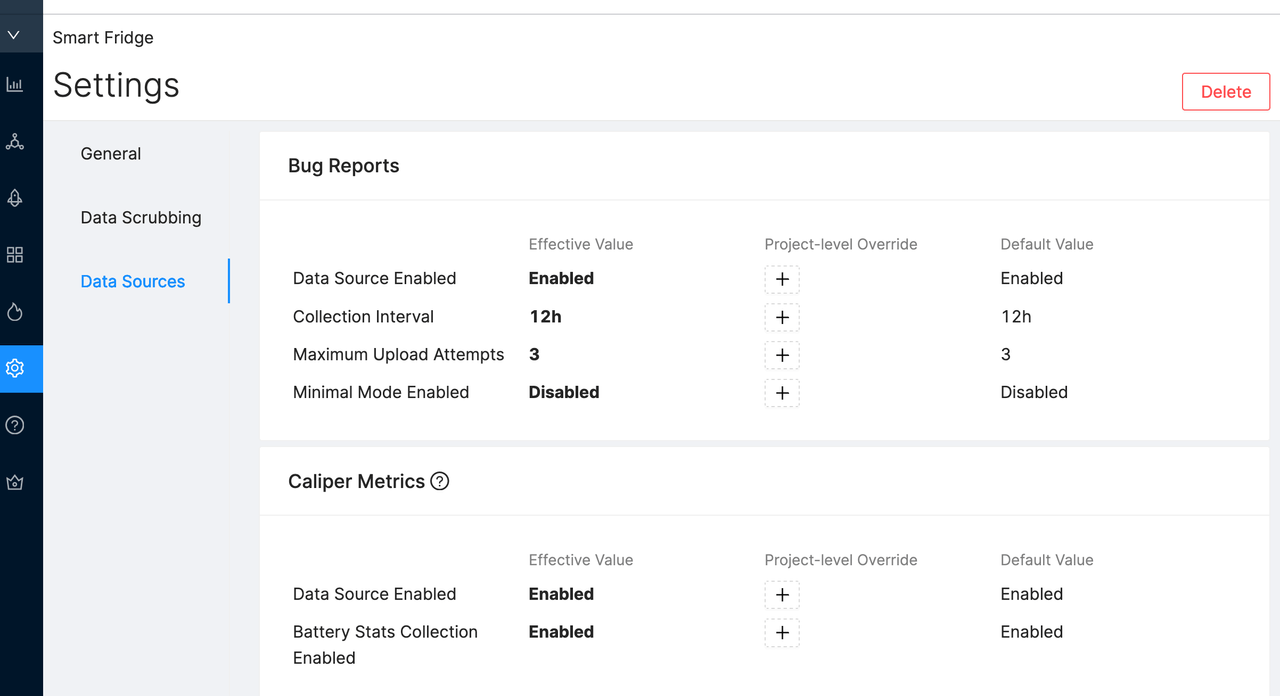
- Files sent from the device to Memfault are now compressed to save bandwidth, which should help those customers whose devices connect over a cellular network.
- For more details on the changes to the Android Bort SDK that didn't make the changelog, check out the Memfault Bort SDK changelog.